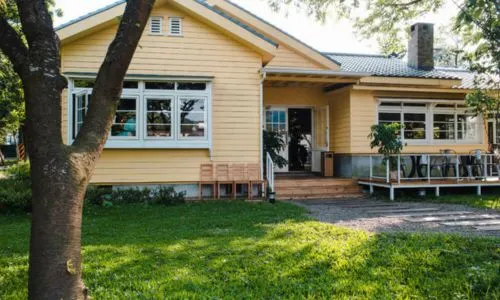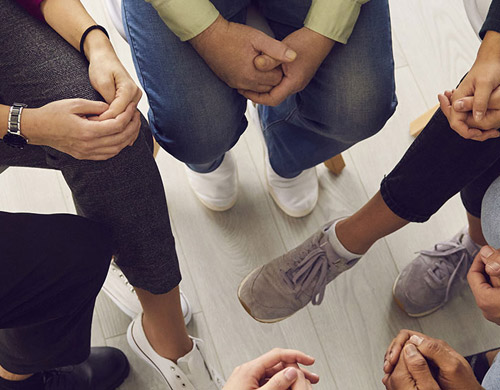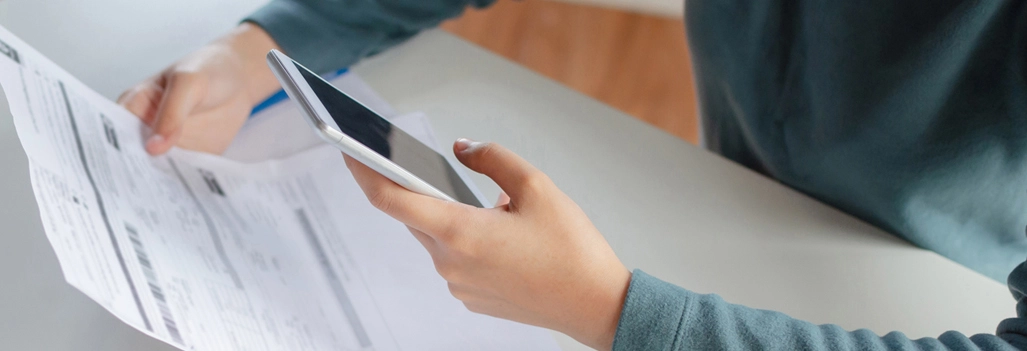Due to the challenges that are associated with alcohol and drug dependence, many people do not know where to turn. The good news is that addiction is a treatable illness and by using proven and professional rehabilitation interventions, long-term recovery can be achieved.
Discover more about how holistic rehabilitation services can help you or a loved one in starting and maintaining recovery from substance dependence.
What is Addiction Rehab (Rehabilitation)?
When we mention addiction ‘rehabilitation’, we mean the combination of medical and therapeutic treatments used to tackle dependencies on alcohol and drugs (including prescription medications).
Rehab treatment offers higher chances of long term recovery success if it is customized to the individual needs of the client and incorporates medically-assisted detoxification, inpatient or outpatient programs, and relapse prevention techniques also known as aftercare.

Facts & Statistics about Addiction in Norwalk
Prevalence of Substance Use Disorder, by Drug Type
(IN THOUSANDS)
- 2,7578.5%Any Substance
- 2,0886.4%Alcohol
- 1,0683.3%Ilicit Drugs
- 2060.6%Pain Medication
Drug- and Alcohol-Induced Deaths by Age Group, California, 2016
- Alcohol-Induced
- Drug-Induced
- 18 to 250.5
- 9.6
- 26 to 354.3
- 13.9
- 36 to 6424.2
- 22.9
- 65+23.7
- 9.4
Drug Use, by Selected Type and Age Group California, 2015 to 2016
- 12 to 17
- 18 to 25
- 26+
- Marijuana*13.2%
- 34.0%
- 13.5%
- Misuse of Pain Medications3.5%
- 8.0%
- 4.3%
- Cocaine0.8%
- 7.2%
- 1.8%
- Heroin0%
- 0.4%
- 0.2%
What are the treatment options available in Norwalk?
By integrating treatments, the primary causes of substance use disorders can be explored and treated. Symptoms of addiction should be treated but building new life skills encourages you to tackle the issues that caused your drug or alcohol addiction.

Private Residential Programs
If you are residing on the same property that you are undergoing your addiction treatments in, you are said to be in a residential treatment program. One of the primary benefits is having access to daily treatment and care.
When you leave your home and move into a treatment center, you can free yourself from exposure to stressors that would have influenced your decision to abuse substances or alcohol.
By having an environment around you that is supportive, the possibility of relapse is reduced and you are more likely to finish your residential rehab program. Residential rehab programs are recommended for patients with intense drug or alcohol dependencies, co-occurring illnesses or dual diagnosis. Taking part in a residential treatment program is an effective way to treat addiction, and sustaining it requires persistent focus because addiction recovery is a challenge during the early stages. After your inpatient addiction treatment, you must consider what you want from your new life, as you work towards becoming more independent.
Do You Need Help?
Our addiction advisers are here to help you.

Sober Living Programs
Sober living programs are designed with the necessary guidance to help recovering individuals get what they want from new life in recovery. They guide you through:
- Round-the-clock check-ins from a house manager
- Developing guidelines to help your behavior in recovery
- Assisting you to develop positive relationships with peers who are having similar difficulties to you
Outpatient Programs
The flexibility of outpatient treatment programs means that you do not have to stop work or participating in family commitments, as you can attend the treatment facility and undergo weekly treatments at your own pace.
Outpatient programs provide you with:
- Education about substance abuse
- Counseling and therapy by facilitating group settings or one-to-one sessions – The minimum duration of an outpatient program is 3/4 months and continue for longer than a year, this is depending on your own needs.
Detox Only Programs
Going through a detoxification program is an important stage in rehab as it deals with your physical dependency by removing substances from your system.Symptoms of withdrawal will start during detox and your body has to learn to function without alcohol or substances it was dependent on.
Withdrawal symbolizes the beginning of the rehabilitation process, and should always be followed up by addressing the primary causes of your addiction, to prevent the same negative cycle of behaviors. Many drugs result in ongoing cravings and withdrawal symptoms after you have completed drug or alcohol detox. Developing vital skills can reduce your risk of relapse as you focus on your new life.
Paying for Private Treatment
If you decide to pursue private treatment, you can use your health insurance to make a claim or pay with your own funds. Typically, insurance providers will allow you to claim for the costs of rehab, at least partially, including a medically assisted detox, rehab program, and relapse prevention programs.
The amount covered is dependent on your provider and the terms of your policy. We advise that you confirm the amount covered for treatment prior to enrolling in rehab. To find out what you could claim through your insurance provider, visit our Verify Your Insurance page.
If you choose not to claim against your health insurance plan, you must pay for your treatment. A number of treatment centres include payment options to clients so that they can pay for treatment in instalments.
Find out if you’re eligible through private health insurance
State Funded Programs
If you want to trackle your substance or alcohol dependency but cannot pay for private treatment, you can apply for a state-funded rehabilitation program.
These programs utilize government funds from state budgets, Medicaid and federal government to support recovery and may include:
- Medically-assisted detox programs
- Addiction counseling and extended care
If you do not have a private healthcare policy or you do not have available funds, you should apply for a state-funded treatment program. You will need to provide:

- Proof of living arrangements
- Proof of finances
- Your medical records and information about your addiction
- Proof that you reside in the US legally
This website gives all the info you need to apply.
You can also locate direct contact details for your state agency by clicking here.
The following state-funded addiction rehab programs are available in Norwalk:
Western Pacific Med Corp Western Pacific Norwalk
11902 East Rosecrans Boulevard, Norwalk, CA 90650
818-956-3737
http://westpacmed.com/index.aspHelpline Youth Counseling Inc The Starting Point Program
12440 Firestone Boulevard, Suite 316, Norwalk, CA 90650
562-864-3722
https://www.hycinc.org/LA Centers for Alcohol and Drug Abuse (LACADA)
11015 Bloomfield Avenue, Santa Fe Springs, CA 90670
562-777-7500
https://www.lacada.com/
Maintaining Addiction Recovery in Norwalk
When you leave and complete your treatment programme, you may need some time to adjust to your new life. When you were in rehab the environment was controlled and you had support from professionals. As you adjust to life after rehab it is very likely that you will find yourself in situations that you still need to learn to address.
In our experience, clients with intense dependencies and those who do not develop the necessary support structure find long term recovery more difficult when they leave rehab. Relapse is a possibility without the right aftercare and support groups to help you navigate your new life.
The following AA/NA meetings are available in Norwalk:
A Gift Of Life
Open, Discussion, Wheelchair and No Smoking:
United Methodist Church 13000 San Antonio Drive, Norwalk, CA 90650
Saturday: 9:00 am – 10:00 am
ecana.orgAA - Hopeful Trudgers
Open: 11507 Studebaker Road, Norwalk, CA 90650
Saturday: 7:30 pm – 8:30 pm
https://alcoholicsanonymous.com/AA - Mommas Meeting
Discussion: 14311 Crossdale Avenue, Norwalk, CA 90650
Sunday: 6:00 pm – 7:30 pm
https://alcoholicsanonymous.com/
Aftercare & Alumni Programs
Aftercare programs provide extended support to you when you leave the rehab center. Up to 60% of clients in recovery relapse as a result of unpredictable challenges in life, taking part in relapse prevention and after services can boost your chance of long-term sobriety.
As you get near to finishing your rehab program, we will support you to create an aftercare program that includes services most vital to your recovery. One great benefit of completing rehab is joining an alumni community program, where you will be able to liaise with peers and staff as part of a recovery community.

You can attend Alumni events, join initiatives and get advice and motivation from others who are also in long-term sobriety. You may feel empowered to pay the favor forward, by giving your support to other ex-clients who are in the same boat.
Support Groups (Fellowship Meetings)
Support groups enable long-term recovery because they recognize the key role that social structures play in supporting addiction recovery. Addiction support groups like AA (Alcoholics Anonymous) and NA (Narcotics Anonymous) provide ongoing support utilizing the 12-step model and group sessions.
When you go to support groups, you will have the ability to share your experiences and listen to other individuals who are also in recovery. By building friendships and committing to the 12-steps, those in recovery can feel empowered to take responsibility for their actions and protect those that love them.
Support for Families & Children Affected by Addiction
The entire family unit is impacted by addiction in the home, some more than others. The individual with the dependency needs help, but other family members also need help.
By joining family support groups, families will learn to manage stress more efficiently, and be able to provide better to your family member recovering from addiction.
Family members can benefit from participating in support groups such as:

- Parents of Addicted Loved Ones
- SMART Recovery Family & Friends
- NAMI Family Support Groups
- Al-Anon
- Families Anonymous
- Alateen
- Nar-Anon









